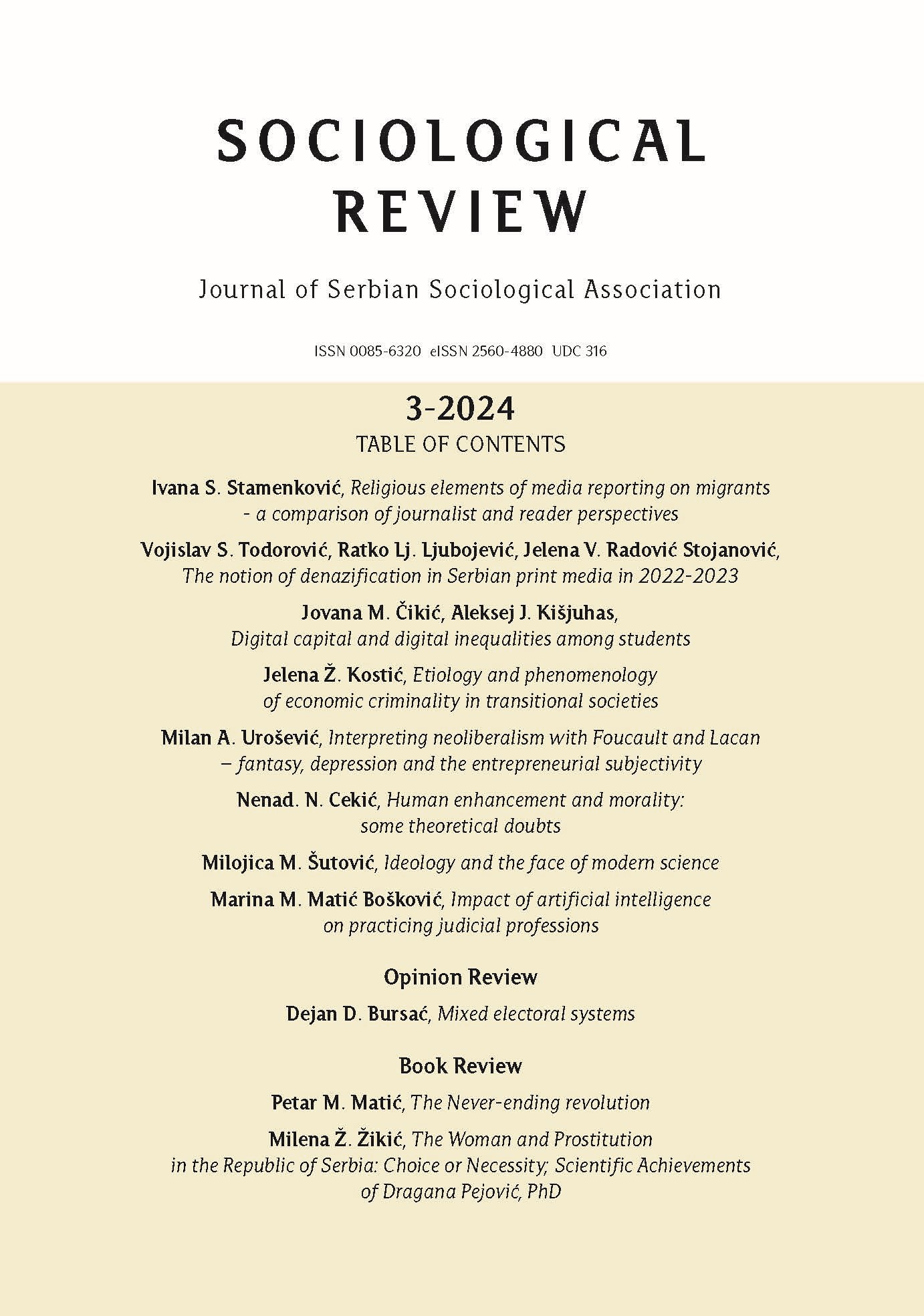Impact of artificial intelligence on practicing judicial professions
Impact of artificial intelligence on practicing judicial professions
Author(s): Marina M. Matić BoškovićSubject(s): Social Sciences, Law, Constitution, Jurisprudence, Sociology, Social development, Social differentiation, Social Norms / Social Control, Sociology of Law
Published by: Српско социолошко друштво
Keywords: judicial profession;artificial intelligence;technology;fundamental rights;right to a fair trial
Summary/Abstract: Artificial intelligence (AI) is transforming various sectors, and the judicial system is no exception. The author explores the impact of AI on practicing judicial professions. The integration of AI into judicial systems offers significant benefits in terms of efficiency, access to justice, and decision-making accuracy. However, it also poses challenges that need to be addressed through careful implementation, ethical considerations, and continuous adaptation. Although the use of the AI in the judiciary is on the rise and varies from country to country, it brings potential risks for fundamental rights. In the article, the author assessed whether the use of AI by judicial professionals jeopardize the right to a fair trial, including the right to an independent and impartial court, equality of parties, etc. The author also evaluates whether some of the introduced tools, especially those predicting court decisions and recidivism, violate fundamental rights. Finally, the author assesses options for further development and use of AI by judicial professions.
Journal: Социолошки преглед
- Issue Year: 58/2024
- Issue No: 3
- Page Range: 481-499
- Page Count: 19
- Language: English, Serbian

